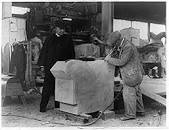Background Passages: Matthew 1, Luke 2, John 14:27, and Philippians 4:7
I am not sure how I ended up on their email list. Like other unwanted SPAM messages, the first one just appeared. Maybe Alexa overheard a conversation I had with Robin about the definition of some obscure word. When the first email for Word Genius arrived, I opened it.
The daily emails give a “word of the day,” tell its origin and its part of speech, define it, and use it in a sentence. Then, it will show a line graph revealing its height in popularity of usage over the years.
For example, today’s word was illation.
Illation is a noun. It comes from Latin, originating in the 16th century. It’s definition: “An action of inferring or drawing a conclusion; an inference.”
The chart shows that the word illation had its period of highest usage at the turn of the 19th century. It has fallen out of favor over the last 221 years.
If you’ve come to the illation that I decided not to unsubscribe to the Word Genius emails, you are correct.
Other new words I’ve learned from Word Genius recently. Tellurian. Craquelure. Hypocoristic. Precator. I could tell you what these words mean, but if you look them up, you’re more apt to remember. (I just had a flashback to my high school English teacher Mrs. Brown.)
Today, however, I have two much more familiar words for you that come from the story of that first Christmas. Behold. Wonder.
Now, I can’t remember the last time I used the word behold in a sentence before today unless I was quoting the Bible. It just doesn’t come up much in today’s conversation. Take it out of its context in the King James Bible and behold is a rather obscure word in today’s English.
Behold derives from the Latin observo, to keep. Its definition is “to fix the eyes upon, to see with attention, to observe with care.”
Think John 1.
“Behold the lamb of God which taketh away the sin of the world.”
It can also mean “to fix attention upon an object, to attend, direct or fix the mind upon.”
Think Revelation 3
“Behold, I stand at the door and knock.”
Terry Sellars, pastor of First Baptist Church, Ludowici, GA, wrote about the significance of behold in the Christmas narrative. We see the word used most often in the Bible as a directive, expressing command or an exhortation.
I think that’s why the word caught my attention as I read the Christmas story. When we think about the importance of the Christmas story we must first go back to the Old Testament prophets. This whole idea was not a last-minute course correction by God to the world’s troubles. It was part of his plan from the beginning. Isaiah told us so.
“Therefore, the Lord himself shall give you a sign; Behold, a virgin shall conceive, and bear a son, and shall call his name Immanuel.” (Isaiah 7:14)
As the events unfold centuries later, we hear Gabriel breaking the news to Mary.
“And behold, thou shalt conceive in thy womb, and bring forth a son, and shalt call his name Jesus.” (Luke 1:31)
After momentarily processing what Gabriel had revealed to her, Mary responded to the frightful, but delightful, good news.
“And Mary said, Behold the handmaid of the Lord; be it unto me according to thy word. And the angel departed from her. (Luke 1:38)
Next we hear the praises of the busy angel who appeared to the shepherds, declaring the wondrous news of the savior’s birth.
“And the angel said unto them, ‘Fear not: for behold, I bring you tidings of great joy, which shall be to all people.” (Luke 2:10)
We hear the word again in the testimony of Simeon who had waited his whole life for this one moment.
“And Simeon blessed them, and said unto Mary his mother, ‘Behold, this child is set for the fall and rising again of many in Israel.”
Behold isn’t just an exclamation. It isn’t God saying to us, “Listen up, please!” It is an imperative. A command. It is a “fix-your-heart-and-mind-upon-this-above-all-else,” moment.
We get so busy doing things at Christmas that the “behold” comes across as a whimpering whisper of a suggestion when it ought to be shouted from the mountaintops with clear authority. For this is that historical moment when God’s love came down with heavenly intent. It’s not just Christmas. It’s the beginning of God’s gift of salvation to a lost and confused world.
Here comes the second word. Wonder. Because we no longer hear the behold as an imperative, we’ve lost the “wonder” that is Christmas.
Wonder is not an archaic word by any means. I often wonder where I left my keys. I wonder when this pandemic will ever end. I wonder why bad things happen to good people. I wonder a great many things.
I am not talking about that kind of wonder. I’m talking about the wide-eye sense of amazement that was so much a part of our lives at Christmas when we were kids. As secularized as Christmas has become over my lifetime, I do remember the absolute wonder of laying out that old Nativity scene under the tree. The wonder inspired by the familiar Christmas carols: Away in a Manger. Silent Night. O, Little Town of Bethlehem.
Those times of being agog and filled with awe of the aura surrounding Christ’s birth was a time when we believed with all our being that God had entered the world for one purpose. To love us so much that he gave his only Son that whoever chose to believe in him would have life abundant and eternal.
We tend to lose that sense of wonder during the hectic moments of life. I find myself struggling to find wonder at a time when my family is hurting. I know others who feel the same worry and angst. Sellers also wrote in a separate piece that in such times as these, we need to remember that even as their worlds turned upside down…
Mary wondered.
Joseph wondered.
The shepherds wondered.
The angels wondered.
The wise men wondered.
While they may have wondered in the sense of trying to figure out what the things they experienced might mean, I think they also experience a sense of wonder…marveling at how blessed they were to be a part of God’s great story. We are a part of God’s great story.
Maybe it’s time to get it back, despite the issues we face, to the wonder of what Christmas means. The Christmas story doesn’t end with the baby in a manger. It doesn’t end with a cross. It doesn’t end with an empty tomb.
It lives on in the faith of those who believe God’s love is strong enough to overcome life’s darkest moments. It lives knowing that, even when life is a struggle, we are not alone. The wonder of Christmas is that God, through Jesus Christ, not only shared his gift of salvation, but also the gifts of his presence and power in the most brutal of times.
“Peace I leave with you; my peace I give to you. Not as the world gives do I give it to you. Let not your hearts be troubled, neither let them be afraid.” (John 14:27)
“And the peace of God, which surpasses all understanding, will guard your hearts and minds in Christ Jesus.” (Philippians 4:7)
In those moments of clarity amid the struggles, I no longer wonder in the context of being uncertain. Instead, I marvel in wonder at the work of God and the peace he can bring when I entrust everything to him.
Behold the Wonder of Christmas.


